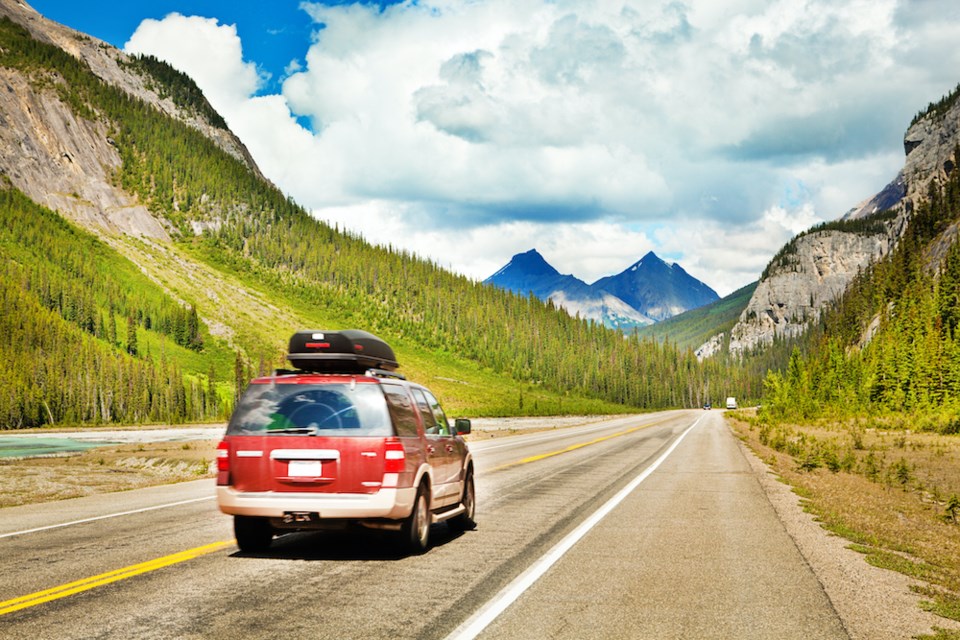"I'm taking further action to carry us through the current spike of COVID-19 cases until more of the population can be vaccinated."
Minister of Public Safety Mike Farnworth told reporters in a press briefing Friday (April 23) that a $575 fine will be issued to people who contravene the new order restricting non-essential travel in the province.
"We've all made great sacrifices to protect our collective health and to keep our healthcare system functioning safely. While I'm disappointed, additional measures are necessary," he said.
Farnworth noted that variants of concern have started to take hold of B.C. communities and that "each case has a chance of infecting more people." In order to combat the surge in cases, people need to "hunker down and stay local."
On the advice of Dr. Bonnie Henry, B.C.’s provincial health officer, Farnworth has issued a new order using the extraordinary powers of the Emergency Program Act to prohibit non-essential travel between three regional zones in the province, using health authority boundaries. The regional zones are:
- Lower Mainland and Fraser Valley (Fraser Health and Coastal Health regions);
- Â鶹´«Ã½Ó³»Island (Island Health region); and
- Northern/Interior (Interior Health and Northern Health regions).
While the order puts legal limits only on travel between regional zones, Farnworth added that the PHO’s guidance remains unchanged throughout B.C.: everyone should continue to stay within their local community – essential travel only.
“While this new legal order targets those who are travelling across regional zones for recreational purposes, the advice from Dr. Henry to stay local remains in place everywhere in B.C. Do not go to Whistler or Tofino – even on a day trip. Everyone should stay close to home," he stated, adding that people can continue to go hiking and camping but should do these activities locally.
Order to continue through the May long weekend
This order will be in effect from April 23 through the May long weekend to May 25, 2021. It applies to everyone in the province, including non-essential travellers from outside B.C.
There are circumstances where travel is essential and permissible, such as attending school or work, the commercial transportation of goods, returning to a principal residence, accessing child care, obtaining health care or assisting someone to receive health care. Funerals will also be considered essential.
To help ensure this travel restriction is effective, the province is also working with:
- The Ministry of Transportation and Infrastructure – on highway signage and increasing signage along the border with Alberta;
- BC Ferries – to restrict non-essential vehicle passage, deter non-essential bookings and limit sailings;
- tourism and accommodation industry association leaders – to strongly encourage all operators/businesses to support the order by declining new bookings from outside their regional zones and cancelling existing bookings from outside their regional zones;
- BC Parks – to inform the public about restrictions and refund bookings where necessary; and
- police departments – on establishing enforcement measures in the coming days.
In the coming days, the province will work with police to establish periodic road checks at key travel corridors during times associated with leisure travel to remind travellers of the order.
Farnworth added that he met with a number of groups representing racialized groups Thursday (April 22) to address concerns that the new order could disproportionately affect BIPOC communities in B.C. He noted that police will not engage in random checks.
If compliance measures are deemed necessary by police, fines can be handed out. At the discretion of police, a contravention of this Emergency Program Act travel order may be subject to a $575 fine.
Effective immediately, these measures are enacted under the provincial state of emergency, using the extraordinary powers of the Emergency Program Act. The act allows the minister to implement all procedures the minister considers necessary to prevent, respond to or alleviate the effects of an emergency, including controlling or prohibiting travel to or from any area of British Columbia.
Correction: An earlier version of this story stated the fine was $525. It's in fact $575. We apologize for the error.



